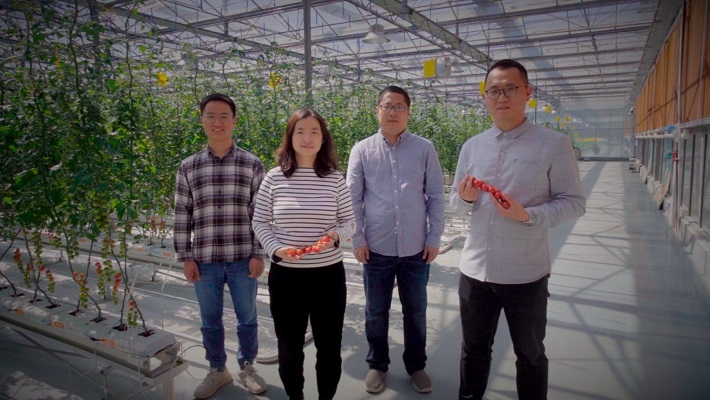Pinduoduo’s Smart Agriculture Competition acts as bridge connecting academia, technology sector and growers

Zhu Qingzhen was 24 when he left his job at an automobile design firm to pursue a doctorate in agricultural engineering, at a time when agriculture was still comparatively untouched by the waves of technological transformation sweeping other industries.
“Everyone faces the question in their youth of what kind of person they want to become,” said Zhu, now 32 and a member of Horti-AI, a team taking part in Pinduoduo’s annual Smart Agriculture Competition. “For me, the answer came from understanding the state of development of agricultural technology equipment. I decided back then that I wanted to make my career in agriculture.”
Now teaching and conducting research at Jiangsu University’s Agricultural Engineering College, Zhu was excited to learn about the Pinduoduo competition, a greenhouse tomato-growing contest designed to challenge participating teams to adopt a multidisciplinary approach in creating cost-effective and easy-to-use technology that can boost profit and productivity while lessening the environmental footprint of agriculture.
Horti-AI is one of four teams that had just completed the six-month challenge, which saw agricultural researchers, data scientists and growers work together to cultivate tomatoes in smart greenhouses in Yunnan. The work was done mostly remotely, controlling and adjusting variables like temperature, humidity and nutrient mix through a smart greenhouse management system. Regular Friday night video conferences were held to compare notes and discuss strategy.
“Smart farming will be part of the transformative solution as our agricultural technology is rapidly evolving towards a new paradigm – Agriculture 4.0, which integrates a series of innovations to produce agricultural products with greater efficiency,” said Carlos Watson, FAO representative to China. “I am very pleased to see that the technical team has used agriculture 4.0-related technologies such as data analysis, intelligent management and control cloud platform, in tomato planting, which not only improves yield, but also improves nutrition, as well as the living standards and capabilities of disadvantaged farmers.”
The annual event is organized by Pinduoduo with cooperation from China Agricultural University and Zhejiang University, and technical guidance from the UN’s Food and Agriculture Organization and Netherlands-based Wageningen University & Research.
The competition is gaining a reputation as a platform where young talents in the field of agricultural scientific research can accurately understand the needs of smallholder famers and develop targeted products, according to He Yong, Dean of the School of Biosystems Engineering and Food Science at Zhejiang University.
The competition has acted as a “bridge connecting agricultural scientists, digital technology experts and farmers” and “promoted mutual understanding between developers and users of technology, and effectively increased the adoption of new technologies,” He said.
Technologies developed during the first Smart Agriculture Competition is currently in use in several major strawberry-growing regions in China to manage growing conditions in greenhouses. Several of the participating teams in this year’s competition have plans to launch pilot projects to test their technology on a larger scale.
For Horti-AI, one key problem to overcome was how to use technology to replicate the decades of experience that veteran growers have accumulated but are unable to transfer to others at scale. Using computer vision technology and machine learning, the team was able to map the knowledge base and create an automated system for recognizing how well the tomatoes are growing. An added benefit of this technology is that the model becomes more accurate over time as it “learns” from more data.
This is borne out in the results. Compared with traditional soil cultivation of cherry tomatoes, the smart greenhouse management model significantly boosted profitability and yield , according to an analysis by the team.
“Through this competition, we can clearly see that the low-cost application of agricultural technologies such as sensors, algorithms, and supplementary light can greatly improve the level of agricultural production and management, effectively improve the yield and quality of agricultural products, and at the same time promote environmental protection and sustainability,” said Andre Zhu, Senior Vice President at Pinduoduo. “We firmly believe that the iteration and promotion of these technologies can bring creative added value to agricultural products, thereby creating more income for large-scale agricultural growers.”












































